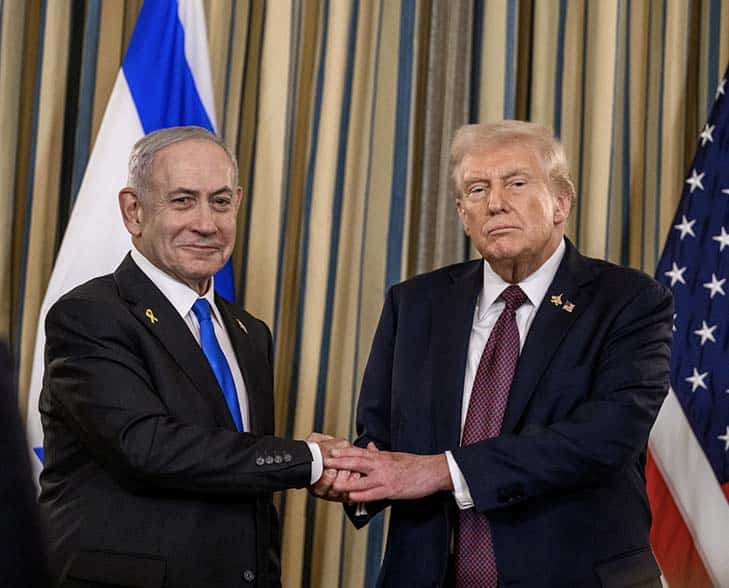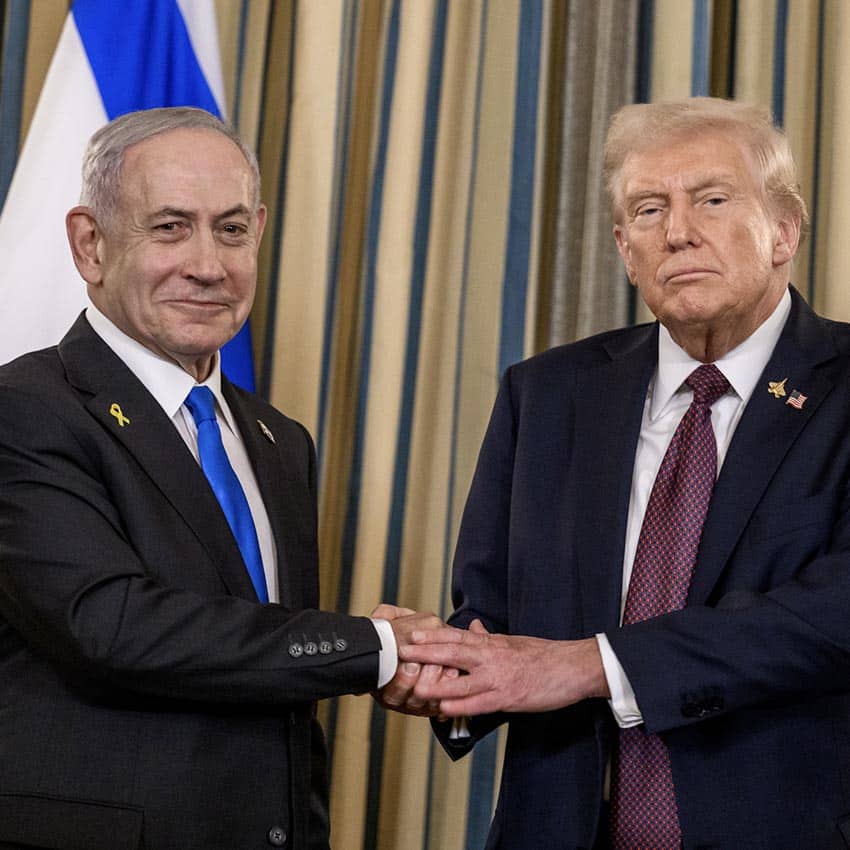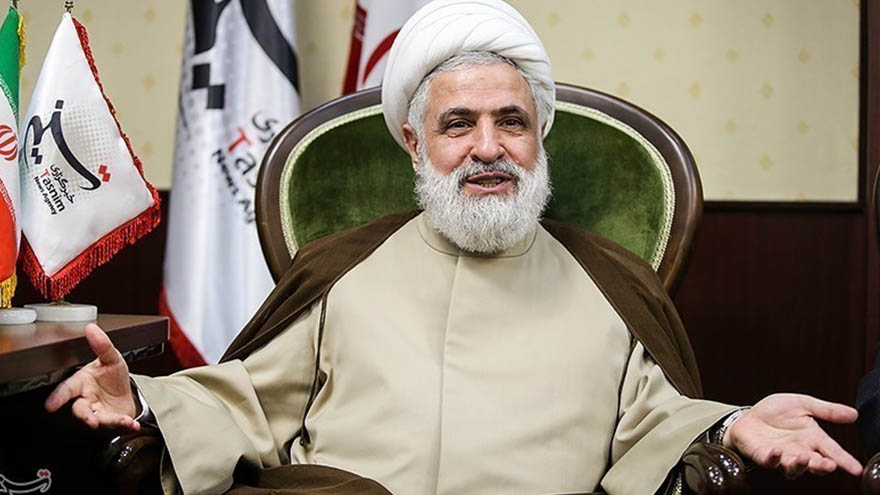Recently, the public debate has once again revived the claim that Israel is a client state of the United States, with some going so far as to define it as a vassal. The depth of American involvement is reflected, among other things, in the establishment of a forward command base in Kiryat Gat under the command of a senior officer from the U.S. Central Command (CENTCOM), and in the presence of the former U.S. ambassador to Yemen, serving as the State Department’s senior representative. In addition, there is the independent American effort to collect intelligence concerning developments in the Gaza Strip. But are all these indeed the ultimate proof of the argument that Israel is a client state?
A client state (or vassal) is entirely dependent on a power for its security, economic, and political support. Israel is indeed reliant on the United States and on its highly significant support—particularly in the security and diplomatic realms, and all the more so given its growing isolation and deteriorating international standing, to the point of persecution and ostracism, especially since October 7. This dependence, of course, did not emerge in recent years but dates back to the late 1960s, when Israel replaced French support—especially in defense matters—with American backing, following the arms embargo imposed by French President Charles de Gaulle before the Six-Day War.
Over the years, ties between the two countries grew stronger. They came to be defined as a “special relationship,” founded on shared values, Israel’s status as the only democracy in the Middle East, and its loyal and highly effective service of numerous American interests. One senior U.S. official even described Israel as “the largest, most efficient, and least expensive aircraft carrier the United States has.” Military, intelligence, diplomatic, technological, economic, and cultural cooperation deepened and expanded over time, and Israel managed to establish itself as a close ally of the world’s leading superpower and as an influential player—thanks also to the large Jewish community and the Jewish lobby in the U.S.—on American politics.
Alongside the tightening relations and unique closeness between the two countries, deep disagreements have also surfaced over the years. In some cases, the U.S. imposed its will and views on Israel or restricted its actions. American administrations and presidents have even intervened in Israel’s internal politics and election campaigns to help their favored candidates (George H. W. Bush in the 1992 elections, Bill Clinton in 1996 and 1999, Barack Obama in 2015, and Joe Biden’s administration during the war of October 7). Israel, for its part, has also intervened in American politics—whether directly, by supporting specific candidates (such as backing Republican candidate Mitt Romney), or indirectly, through a defiant address by Netanyahu before both houses of Congress in 2015 against President Obama and his administration, or via intermediaries (such as AIPAC).
There is no doubt that relations with Donald Trump’s administration—both during his first term and certainly since the beginning of his second—are unlike anything seen before. Trump has proven to be one of Israel’s most incredible supporters, and his relationship with Prime Minister Benjamin Netanyahu has been exceptionally close and personal. Despite the occasional displeasure Trump expressed over Netanyahu’s conduct, the bond between them has been powerful, granting Israel immense influence over U.S. policy. That influence is so significant that some in the U.S. claim Israel dictates the administration’s agenda and even controls the CIA.
From the American side—if the embassy move to Jerusalem marked Trump’s first term, recognition of Israeli sovereignty over the Golan Heights, and the formulation of the Abraham Accords—his second term has been characterized by near-unqualified support for Israel. This has manifested in steadfast backing during the war in Gaza and on other fronts, substantial and impressive U.S. military participation in Operation “With the Heart of a Lion” in Iran, and decisive alignment with Israel in the international arena—including the imposition of harsh American sanctions on entities and institutions acting against Israel, among them UN agencies and the International Criminal Court.
A Plan in the Spirit of the President’s Vision
President Trump’s plan to end the war in the Gaza Strip should rightly be seen as another highly significant American initiative that advances Israeli interests and the war objectives defined by Netanyahu’s government. Although there are no clear, positive indications regarding the extent of Prime Minister Netanyahu’s and Minister Ron Dermer’s involvement in shaping President Trump’s plan to end the war in Gaza, the prevailing assumption is that it was, in practice, formulated by Israel together with the President’s trusted envoys—Steve Witkoff and Jared Kushner. There is no doubt that full implementation of the plan presented to President Trump—approved by him and later known as the “20-Point Plan”—would achieve Israel’s five war objectives (the dismantling of Hamas, the return of the hostages, the establishment of an alternative civil administration, the demilitarization of the Strip, and continued Israeli security control). The outcome would therefore be a decisive victory, meaning the total defeat of Hamas.
At the same time, the President’s plan should not be viewed solely through an Israeli lens or as pertaining only to the Gaza Strip. The plan represents the corridor opened by Trump to realize his broader regional vision, one he nurtured and pursued since his first term, during which he secured the Abraham Accords. From the American President’s perspective, ending the war in Gaza is a necessary precondition for shaping a new regional architecture—one that expands the Abraham Accords and accelerates normalization processes between Israel and Arab states in the region, as well as Muslim states beyond it.
In Trump’s view, this new regional architecture is not only a vital American asset but also an essential lever for advancing U.S. interests in other arenas of the international system. His success in achieving peace and stability in the Middle East through a significant expansion of the Abraham Accords would cement his status as the greatest peacemaker in modern history—and perhaps pave the way for the Nobel Prize he so highly values. Beyond that, it would reinforce America’s position as the dominant global hegemon—powerful, leading, and influential. Realizing this strategic asset and lever, in Trump’s vision, would bolster the American economy through massive trade agreements and a network of alliances and military partnerships, based on extensive weapons purchases from the United States.
Accordingly, the American motivation for ensuring the plan’s success in Gaza—and the deep involvement, determination, and decisiveness of the President himself—should be understood in the context of essential American interests. The clear expectation of Trump and his administration is that Israel act as a loyal ally, expressing gratitude to the President and to the United States for their consistent and significant support. Israel, for its part, has a strong interest in the continued dominance of the U.S. as the world’s leading superpower—and an equally clear interest in the success of the 20-Point Plan.

Easing the Burden of the Palestinian Issue
Israel’s interests would remain valid even if the plan were to fail—despite American and other efforts and Israel’s cooperation. In such a case, responsibility would fall squarely on Hamas, granting Israel far broader legitimacy to resume military operations against the terrorist organization until its complete dismantlement. Therefore, it is in Israel’s best interest not only to cooperate with the Americans but to do everything within its power to ensure their success—by their methods and through their mechanisms, such as the newly established coordination headquarters—and to publicly and privately back the President and his envoys, both through professional and direct channels.
The 20-Point Plan is a significant Israeli achievement—both at this moment and in historical perspective. For the first time since the establishment of the state, Israel has managed to transform the burden of the Palestinian issue from an exclusively Israeli matter into one borne by the international community, led by the United States—and including the Arab world. Many Arab states were among the original drivers of this issue and amplified it over the years, cynically exploiting it to promote their struggle and conflict with Israel.
It is essential to understand that there has never been, and will never be, proper symmetry in Israel-U.S. relations. It is necessary to internalize the centrality of American interests in the President’s and his administration’s eyes, the importance of Israel’s genuine cooperation, and, above all, to recognize that the implementation of this plan represents both a historic and a strategic achievement for Israel. In light of all this, assertions that Israel is a client or vassal state of the United States should be regarded with skepticism and criticism. Most of these claims are empty and malicious, containing perhaps much rhetoric—but no truth, and indeed no sober reading of reality.








